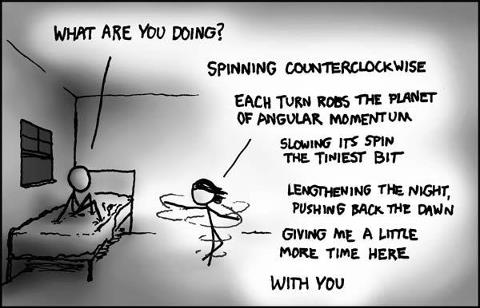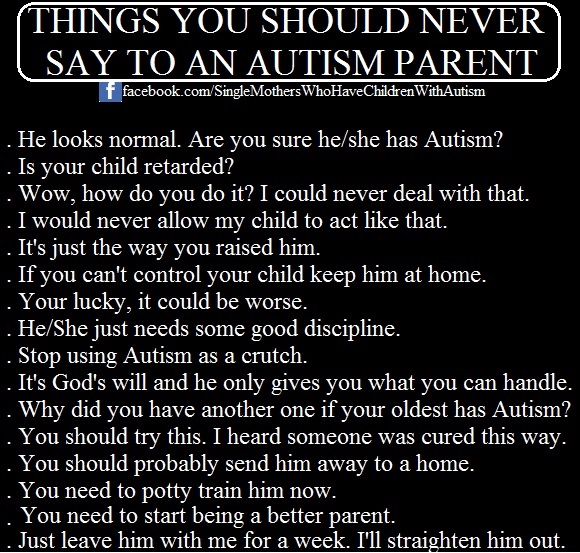October is Sensory Processing Disorder (SPD) awareness month.
Many have asked me what that is, and honestly, I am terrible at explaining what it is.
Many have asked me what that is, and honestly, I am terrible at explaining what it is.
I am still trying to understand it, but from SPD foundation website ( http://www.spdfoundation.net/about-sensory-processing-disorder/)
It says "Sensory processing (sometimes called "sensory integration" or SI) is a
term that refers to the way the nervous system receives messages from
the senses and turns them into appropriate motor and behavioral
responses. Whether you are biting into a hamburger, riding a bicycle,
or reading a book, your successful completion of the activity requires
processing sensation or "sensory integration."
Sensory Processing Disorder (SPD, formerly known as "sensory
integration dysfunction") is a condition that exists when sensory
signals don't get organized into appropriate responses. Pioneering
occupational therapist and neuroscientist A. Jean Ayres, PhD, likened
SPD to a neurological "traffic jam" that prevents certain parts of the
brain from receiving the information needed to interpret sensory
information correctly. A person with SPD finds it difficult to process
and act upon information received through the senses, which creates
challenges in performing countless everyday tasks. Motor clumsiness,
behavioral problems, anxiety, depression, school failure, and other
impacts may result if the disorder is not treated effectively."
Still confused, ya...me too! So basically in a nut shell, this is what Dezmin has.
He has a difficult time waving, talking, using utensils, and basic activities of daily living.

Still confused, ya...me too! So basically in a nut shell, this is what Dezmin has.
He has a difficult time waving, talking, using utensils, and basic activities of daily living.

Hopefully these pictures help to explain what life is like for our little guy.
To be honest, I was in dark place when we found out Dezmin was experiencing some delays.
I lived in constant fear that he wouldn't excel at things like his younger cousins were doing.
He would not respond to his name, no eye contact, and he stopped talking all together.
I cried, and cried and cried. I also kept thinking about what would his future be like for him, then I would cry some more. Believe me, I still cry about this some days, but I am feeling so hopeful about this now. We have beautiful blessing in our family. He is what I prayed for and we are so proud of his accomplishments already.
So what is Autism Spectrum Disorder? Again, I am terrible at explaining.
Autism Speaks (https://www.autismspeaks.org/what-autism ) defines ASD as "Autism spectrum disorder (ASD) and autism are both general terms for a
group of complex disorders of brain development. These disorders are
characterized, in varying degrees, by difficulties in social
interaction, verbal and nonverbal communication and repetitive
behaviors.
Each individual with autism is unique. Many of those on the autism
spectrum have exceptional abilities in visual skills, music and academic
skills. About 40 percent have average to above average intellectual
abilities. Indeed, many persons on the spectrum take deserved pride in
their distinctive abilities and “atypical” ways of viewing the world.
Others with autism have significant disability and are unable to live
independently. About 25 percent of individuals with ASD are nonverbal
but can learn to communicate using other means. Autism Speaks’ mission
is to improve the lives of all those on the autism spectrum. For some,
this means the development and delivery of more effective treatments
that can address significant challenges in communication and physical
health. For others, it means increasing acceptance, respect and support."
So what is the relationship between these two? SPD foundation explains it perfectly. (http://www.spdfoundation.net/about-sensory-processing-disorder/otherdisorders/)
"When two disorders co-exist in one person, the phenomenon is known as
"comorbidity." The SPD Foundation has sponsored and conducted a number
of studies into the comorbidity of SPD with other common childhood
disorders such as ADHD, autistic spectrum disorders including
Asperger's, Fragile X Syndrome, Prader-Willi Syndrome, and other
diagnoses.
Children whose Sensory Processing Disorder conforms to the
under-responsivity subtype typically require a great deal of stimulation
in order to become alert and active, a behavior often seen in children
with autistic spectrum disorders. Meanwhile, other children with ASD
have symptoms more similar to the over-responsive subtype of SPD.
Because Autism and SPD both have over-responding and under-responding
categories, they are sometimes mistaken for another.
The relationship between SPD and Autism is an area of great interest to scientists and families living with the condition. Studies
by the SPD Foundation suggest that more than three-quarters of children
with autistic spectrum disorders have significant symptoms of Sensory
Processing Disorder.
However, the reverse is not true. Most children with SPD do not have an autistic spectrum disorder! Our research suggests that the two conditions are distinct disorders just as SPD and ADHD are different disorders.
Appropriate intervention relies upon accurate diagnosis. Pursuing an evaluation for SPD by a qualified occupational therapist with sensory integration training facilitates diagnosis that distinguishes autistic spectrum issues from sensory issues. This distinction increases the likelihood that your child will receive the appropriate treatment for his or her neurological conditions.
With further research into the relationship of SPD and autistic spectrum disorders, the SPD Foundation hopes to facilitate better more appropriate invention for all children who have either – or both – SPD and Autism."
Ya my brain hurts too. It is a lot to take in. I am still learning something new everyday with these disorders. All these development milestones and red flags....blah,blah,blah. One thing I have to remember is, strive for progress, not perfection. How awesome is this?
I look at him and I am so proud of him! He has progressed so much already.
Yesterday, His Occupational Therapist texted me saying he SPOKE! Umm...what? FOR REAL and of course I missed it! He said "Please" clear as day. I cried with tears of joy! I am so proud of him!

His progress, determination, smile, hugs and his slobbery, Honey Comb Kisses will always outweigh my sadness or worry. He is our blessing! We are so proud of you Dezmin!
However, the reverse is not true. Most children with SPD do not have an autistic spectrum disorder! Our research suggests that the two conditions are distinct disorders just as SPD and ADHD are different disorders.
Appropriate intervention relies upon accurate diagnosis. Pursuing an evaluation for SPD by a qualified occupational therapist with sensory integration training facilitates diagnosis that distinguishes autistic spectrum issues from sensory issues. This distinction increases the likelihood that your child will receive the appropriate treatment for his or her neurological conditions.
With further research into the relationship of SPD and autistic spectrum disorders, the SPD Foundation hopes to facilitate better more appropriate invention for all children who have either – or both – SPD and Autism."
Ya my brain hurts too. It is a lot to take in. I am still learning something new everyday with these disorders. All these development milestones and red flags....blah,blah,blah. One thing I have to remember is, strive for progress, not perfection. How awesome is this?
I look at him and I am so proud of him! He has progressed so much already.
Yesterday, His Occupational Therapist texted me saying he SPOKE! Umm...what? FOR REAL and of course I missed it! He said "Please" clear as day. I cried with tears of joy! I am so proud of him!

His progress, determination, smile, hugs and his slobbery, Honey Comb Kisses will always outweigh my sadness or worry. He is our blessing! We are so proud of you Dezmin!






nice post!
ReplyDeletehttps://www.cekaja.com/info/cara-mengelola-pinjaman-panin-bank-untuk-modal-usaha